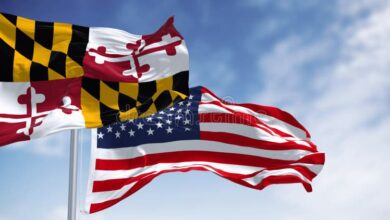Remembrance Day of the Latvian Legionnaires 2024
Honoring Latvian Legionnaires: Unveiling the Untold Stories of Remembrance Day
Explore the poignant history and untold tales behind Remembrance Day of the Latvian Legionnaires, as we pay tribute to their sacrifice and courage.
Read also:
QUICK FACTS
- Date: March 16th
- Main Components: A march and a ceremony in Riga, the capital of Latvia, to commemorate the Latvian soldiers who fought in the Waffen-SS against the Soviet Union in World War II.
- Popularity: A controversial and divisive event that attracts thousands of participants and protesters every year, as well as national and international attention and criticism.
- Pairings: Other related events and holidays in Latvia, such as Lāčplēsis Day (November 11), Proclamation Day (November 18), and Restoration of Independence Day (May 4).
- Variations: Alternative events and commemorations organized by the anti-fascist and civil society groups, such as the Flowers of Resistance, the Shame March, and the Beneath our feet a white.
Introduction
The Remembrance Day of the Latvian Legionnaires, also known as March 16, is an annual event that commemorates the battles of the Latvian Legion, a formation of the Waffen-SS that consisted of Latvian volunteers who fought against the Soviet Union in World War II. The event involves a march and a ceremony in Riga, the capital of Latvia, where the participants lay flowers at the Freedom Monument, a symbol of the Latvian national independence and identity.
The Remembrance Day of the Latvian Legionnaires is a controversial and divisive event that reflects the complex and contested historical memory of Latvia and its relations with its neighbors and the international community. The event is opposed and criticized by various actors and groups, such as the Latvian anti-fascists and civil society activists, the Russian government and the Russian minority in Latvia, the international organizations and the Western countries, who view the event as a glorification of Nazism and a distortion of history. The event is also regulated and restricted by the Latvian government, which does not endorse or participate in the event but allows it to take place under certain conditions and limitations.
This article aims to provide a comprehensive and balanced overview of the history, controversy and significance of the Remembrance Day of the Latvian Legionnaires. It will examine the formation and role of the Latvian Legion in World War II, the origins and observance of the Remembrance Day, the different perspectives and reactions of the various stakeholders, and the impact and implications of the event on the Latvian society and identity.
Related: Book Smugglers Day In Lithuania 2023
History of the Latvian Legion
The Latvian Legion was a formation of the Waffen-SS, the military branch of the Nazi party, that consisted of Latvian volunteers who fought against the Soviet Union in World War II. The Latvian Legion was composed of two Waffen Grenadier Divisions of the SS: the 15th (Latvian No. 1) and the 19th (Latvian No. 2). The Latvian Legion was formed in 1943, after Nazi Germany occupied Latvia in 1941 and faced the advancing Red Army in the Eastern Front.
The motivations and circumstances of the Latvian volunteers who joined the Legion were diverse and complex. Some of them were motivated by anti-Soviet sentiment, as they had experienced the brutal Soviet occupation of Latvia in 1940-1941, which resulted in mass deportations, executions, and repression of the Latvian population. Some of them were motivated by nationalism, as they saw the Legion as a way to fight for the Latvian independence and sovereignty, which had been lost since 1940. Some of them were motivated by coercion, as they faced the threat of conscription, imprisonment, or death if they refused to join the Legion. Some of them were motivated by survival, as they had no other choice but to join the Legion in order to escape the harsh conditions of the Nazi labor camps, prisons, or ghettos.
The main battles and operations of the Latvian Legion took place in 1944, when the Red Army launched a series of offensives to liberate the Baltic States from the Nazi occupation. The most notable battles were the Battle of the Velikaya River, which took place on March 16, 1944, and involved the 15th Division of the Latvian Legion, and the Battle of Zhestianaya Gorka, which took place on July 16-27, 1944, and involved the 19th Division of the Latvian Legion. Both battles were defensive and resulted in heavy casualties for the Latvian Legionnaires, who were outnumbered and outgunned by the Soviet forces. The Latvian Legionnaires also participated in other operations, such as Operation Winterzauber, which was a counterattack against the Soviet partisans in Belarus in February-March 1944, and the Battle of Hill 93.4, which was a defensive action against the Soviet advance in Estonia in September 1944.
The role and responsibility of the Latvian Legion in the Holocaust and other atrocities committed by Nazi Germany and its allies is a controversial and disputed issue. The Latvian Legion was not directly involved in the mass murder of the Jews and other victims of the Nazi regime, as it was mainly engaged in the combat operations against the Soviet Army. However, some of the Latvian Legionnaires had previously served in other Nazi formations, such as the Arajs Kommando, the Auxiliary Police, and the Einsatzgruppen, which were responsible for the killing of tens of thousands of Jews and other civilians in Latvia and elsewhere. Moreover, some of the Latvian Legionnaires participated in or witnessed the crimes committed by the Nazi authorities and their collaborators, such as the burning of villages, the execution of prisoners, and the deportation of civilians. The Latvian Legion was also subordinate to and loyal to the Nazi regime, which was based on the ideology of racial supremacy, antisemitism, and totalitarianism.
Controversy of the Remembrance Day of the Latvian Legionnaires
The Remembrance Day of the Latvian Legionnaires, also known as March 16, is an annual event that commemorates the battles of the Latvian Legion in 1944, especially the Battle of the Velikaya River, which took place on March 16, 1944. The event involves a march and a ceremony in Riga, the capital of Latvia, where the participants lay flowers at the Freedom Monument, a symbol of the Latvian national independence and identity. The event is not an official holiday but a day of remembrance that is regulated by the Law on Holidays and Remembrance Days, which states that “the commemoration of the deceased soldiers is a personal matter for each individual”.
The Remembrance Day of the Latvian Legionnaires is a controversial and divisive event that attracts thousands of participants and protesters every year, as well as national and international attention and criticism. The event is opposed and criticized by various actors and groups, such as:
- The Latvian government, which does not endorse or participate in the event but allows it to take place under certain conditions and restrictions. The Latvian government has stated that the event is not a celebration of Nazism or a revision of history, but a tribute to the fallen soldiers and a reflection of the tragic fate of the Latvian people in World War II. The Latvian government has also imposed bans on the display of Nazi symbols and slogans, the participation of public officials and foreign citizens, and the use of public transportation and venues for the event. The Latvian government has also expressed its commitment to the principles of democracy, human rights, and the rule of law, and its condemnation of any forms of extremism, racism, and intolerance.
- The Latvian Legionnaires and their supporters, who view the event as a tribute to the fallen soldiers and a symbol of the struggle for Latvian independence. The Latvian Legionnaires and their supporters have argued that the event is not a glorification of Nazism or a distortion of history, but a recognition of the sacrifice and courage of the Latvian soldiers who fought against the Soviet oppression and occupation. The Latvian Legionnaires and their supporters have also claimed that the event is a matter of freedom of expression and assembly, and a manifestation of the Latvian national identity and sovereignty. The Latvian Legionnaires and their supporters have also expressed their respect for the victims of the Holocaust and other atrocities, and their rejection of any forms of extremism, racism, and intolerance.
- The Latvian anti-fascists and civil society activists, who oppose the event as a glorification of Nazism and a distortion of history. The Latvian anti-fascists and civil society activists have argued that the event is a celebration of Nazism and a revision of history, as it honors the Latvian soldiers who fought in the Waffen-SS, which was a criminal organization that participated in the Holocaust and other atrocities. The Latvian anti-fascists and civil society activists have also claimed that the event is a provocation and an insult to the victims of the Nazi regime and their descendants, and a threat to the democratic values and the human dignity of the Latvian society. The Latvian anti-fascists and civil society activists have also organized alternative events and commemorations, such as the Flowers of Resistance, the Shame March, and the Beneath our feet a white, which aim to honor the victims of the Nazi regime and to promote peace and tolerance.
- The Russian government and the Russian minority in Latvia, who condemn the event as a manifestation of neo-Nazism and a provocation against the Russian-speaking population. The Russian government and the Russian minority in Latvia have argued that the event is a manifestation of neo-Nazism and a provocation against the Russian-speaking population, as it insults the memory and the
- The memory and the dignity of the Soviet soldiers and partisans who liberated the Baltic States and defeated the Nazi Germany.
- The international organizations and the Western countries, express concern and criticism over the event and its implications for human rights, democracy, and regional stability. The international organizations and Western countries have argued that the event is a violation of international law and European values, as it contradicts the verdict of the Nuremberg Tribunal, which declared the Waffen-SS as a criminal organization, and the resolutions of the United Nations and the European Parliament, which condemned the glorification of Nazism and its collaborators. The international organizations and the Western countries have also urged the Latvian government to ban the event and to take measures to prevent the spread of extremism, racism, and intolerance.
Related: International Day to Combat Islamophobia 2023
Significance of the Remembrance Day of the Latvian Legionnaires
The Remembrance Day of the Latvian Legionnaires is not only a matter of the past, but also a matter of the present and the future. It is an opportunity for Latvia to engage in a critical and honest reflection on its history and identity, and to foster a dialogue and understanding with its diverse and interdependent partners. The event has a significant impact and implications on the Latvian society and identity, such as:
- The historical memory and the national narrative of Latvia, which is shaped by the traumatic experiences of the Soviet and Nazi occupations and the restoration of independence in 1991. The event reveals the different and conflicting interpretations and representations of the Latvian history and the role of the Latvian Legion in World War II. The event also challenges the Latvian society to confront and acknowledge the dark and painful aspects of its past, such as the collaboration with the Nazi regime and the participation in the Holocaust and other atrocities.
- The social cohesion and the interethnic relations of Latvia, which are challenged by the polarization and radicalization of the Latvian and Russian communities and the rise of nationalism and extremism. The event exacerbates the tensions and conflicts between the Latvian and Russian populations, who have different historical and cultural backgrounds, linguistic and religious preferences, and political and economic interests. The event also fuels the hatred and discrimination against the Russian minority, who constitute about a quarter of the Latvian population, and who face various forms of marginalization and exclusion in the Latvian society.
- The international reputation and the regional security of Latvia, are affected by the tensions and conflicts with Russia and the expectations and obligations of the European Union and NATO. The event provoked the hostility and aggression of Russia, which considers the event as a threat to its national interests and security, and which uses the event as a pretext to interfere and destabilize the Baltic States and the Eastern Europe. The event also undermines the trust and cooperation of the European Union and NATO, which consider the event as a violation of their values and principles, and which expect the Latvian government to comply with their standards and norms.
The Remembrance Day of the Latvian Legionnaires also offers some opportunities and possibilities for addressing the controversy and enhancing the dialogue and understanding among the different stakeholders, such as:
- Promoting historical education and research that is based on facts, evidence, and multiple perspectives. The Latvian society needs to develop a more comprehensive and balanced understanding of its history and the role of the Latvian Legion in World War II, which is not influenced by the ideological or political agendas, but by the scientific and academic methods. The Latvian society also needs to learn from the experiences and lessons of other countries and regions that have faced similar historical and moral dilemmas, such as Germany, Poland, and Scandinavia.
- Encouraging civic engagement and participation that is respectful, inclusive, and constructive. The Latvian society needs to create more spaces and platforms for dialogue and exchange among the different groups and communities, especially the Latvian and Russian populations, who have different views and opinions on the Remembrance Day of the Latvian Legionnaires and other issues. The Latvian society also needs to foster more initiatives and activities that promote the values and practices of democracy, human rights, and the rule of law, such as civil society organizations, media outlets, and educational institutions.
- Strengthening the cooperation and communication with the regional and international partners that is transparent, consistent, and mutually beneficial. The Latvian government needs to maintain and improve its relations and interactions with its neighbors and allies, especially Russia, the European Union, and NATO, who have different interests and expectations on the Remembrance Day of the Latvian Legionnaires and other issues. The Latvian government also needs to demonstrate and communicate its commitment and contribution to regional and international peace and stability, such as by participating and supporting the multilateral forums and mechanisms, such as the United Nations, the OSCE, and the Council of Europe.
REMEMBRANCE DAY OF THE LATVIAN LEGIONNAIRES WISHES, QUOTES, AND MESSAGES
TOP 20 REMEMBRANCE DAY OF THE LATVIAN LEGIONNAIRES WISHES AND GREETINGS
Here are 20 unique Remembrance Day of the Latvian Legionnaires wishes and greetings:
- “On Remembrance Day, may the valor of Latvian Legionnaires be a beacon of courage for us all.”
- “Sending heartfelt gratitude on Remembrance Day, honoring the Latvian Legionnaires who stood tall.”
- “In remembrance of the Latvian Legionnaires, may their bravery inspire a world of peace.”
- “Wishing peace and reflection on Remembrance Day as we honor the Latvian Legionnaires’ sacrifice.”
- “May the spirit of Latvian Legionnaires shine bright on this Remembrance Day. Lest we forget.”
- “Honoring the Latvian Legionnaires on this solemn day – their courage echoes through time.”
- “Warm wishes on Remembrance Day, remembering the Latvian Legionnaires who gave their all.”
- “In quiet remembrance, may the Latvian Legionnaires’ bravery be forever etched in our hearts.”
- “On this Remembrance Day, let us reflect on the sacrifices of the Latvian Legionnaires with gratitude.”
- “Sending thoughts of peace and remembrance on this special day dedicated to Latvian Legionnaires.”
- “May the legacy of Latvian Legionnaires guide us towards a world of unity and understanding.”
- “On Remembrance Day, honoring the Latvian Legionnaires who paved the way for a brighter future.”
- “Reflecting on the bravery of Latvian Legionnaires, may their stories inspire generations to come.”
- “Wishing solemn remembrance on this day dedicated to the heroes – the Latvian Legionnaires.”
- “In honor of Remembrance Day, may the Latvian Legionnaires’ sacrifices never fade from memory.”
- “Sending thoughts of gratitude and respect on Remembrance Day for the Latvian Legionnaires.”
- “May the courage of Latvian Legionnaires be a source of strength for us on this Remembrance Day.”
- “On this solemn occasion, we pay tribute to the Latvian Legionnaires – heroes never forgotten.”
- “In honor and remembrance, may the legacy of Latvian Legionnaires continue to inspire us.”
- “Wishing a day of reflection and gratitude on Remembrance Day for the Latvian Legionnaires who bravely served.”
TOP 20 REMEMBRANCE DAY OF THE LATVIAN LEGIONNAIRES QUOTES
Here are 20 unique Remembrance Day of the Latvian Legionnaires quotes:
- “In the tapestry of history, the Latvian Legionnaires are woven as threads of courage and sacrifice.”
- “On Remembrance Day, we stand in awe of the Latvian Legionnaires, whose bravery echoes through time.”
- “Their valor lives on, a testament to the Latvian Legionnaires who stood firm in the face of adversity.”
- “Lest we forget the Latvian Legionnaires, whose sacrifice paved the path for a future of freedom.”
- “In the quiet of remembrance, we hear the echoes of Latvian Legionnaires, heroes of a bygone era.”
- “On this solemn day, we honor the Latvian Legionnaires – symbols of unwavering courage.”
- “Through the mists of time, the legacy of Latvian Legionnaires shines as a beacon of inspiration.”
- “In tribute to those who served, the Latvian Legionnaires’ sacrifice remains etched in history.”
- “Remembering the Latvian Legionnaires, whose courage transcends the boundaries of time.”
- “Their stories linger in the winds of history – the Latvian Legionnaires, forever remembered.”
- “In the tapestry of sacrifice, the Latvian Legionnaires are woven with threads of bravery and honor.”
- “Lest we forget the Latvian Legionnaires, whose courage echoes in the annals of remembrance.”
- “On this day of reflection, we pay homage to the Latvian Legionnaires, guardians of liberty.”
- “In the pages of history, the Latvian Legionnaires wrote a chapter of valor and selflessness.”
- “The sacrifice of Latvian Legionnaires is a reminder that freedom comes at the cost of courage.”
- “In the hallowed halls of memory, the Latvian Legionnaires stand as eternal sentinels of bravery.”
- “Their deeds echo through time, the Latvian Legionnaires – guardians of a nation’s honor.”
- “Lest we forget the Latvian Legionnaires, whose courage forged a path to a brighter future.”
- “On this Remembrance Day, we salute the Latvian Legionnaires, whose bravery remains unmatched.”
- “In the silence of remembrance, we hear the echoes of Latvian Legionnaires’ bravery and sacrifice.”
TOP 20 REMEMBRANCE DAY OF THE LATVIAN LEGIONNAIRES MESSAGES/SMS
Here are 20 unique Remembrance Day of the Latvian Legionnaires messages:
- “On Remembrance Day, may the spirit of the Latvian Legionnaires inspire us to cherish freedom and honor sacrifice.”
- “In solemn remembrance, we honor the Latvian Legionnaires whose courage shaped the course of history. Lest we forget.”
- “Remembering the Latvian Legionnaires with gratitude and reverence on this Remembrance Day. Their sacrifice echoes in eternity.”
- “As we pause to reflect, let’s pay homage to the Latvian Legionnaires, whose bravery is eternally etched in our hearts.”
- “On this day of remembrance, we honor the Latvian Legionnaires whose selflessness paved the way for a brighter tomorrow.”
- “In the tapestry of time, the Latvian Legionnaires’ sacrifice stands as a testament to bravery and dedication. Lest we forget.”
- “Sending thoughts of gratitude and remembrance on this special day dedicated to the Latvian Legionnaires. Their legacy endures.”
- “May the stories of the Latvian Legionnaires resonate in our hearts, reminding us of the price paid for liberty and peace.”
- “In honor of Remembrance Day, we commemorate the Latvian Legionnaires whose bravery echoes through the corridors of time.”
- “On this solemn occasion, let us reflect on the courage of the Latvian Legionnaires and strive for a world they envisioned.”
- “With deep respect, we remember the Latvian Legionnaires whose sacrifices echo in the freedom we cherish today. Lest we forget.”
- “Honoring the Latvian Legionnaires on Remembrance Day—a day to reflect, remember, and express gratitude for their noble sacrifices.”
- “As we remember the Latvian Legionnaires, let us pledge to preserve the values they fought for, ensuring a legacy that endures.”
- “In the quiet moments of reflection, we pay tribute to the Latvian Legionnaires and their indomitable spirit. Lest we forget.”
- “On this day of remembrance, we bow our heads in gratitude for the Latvian Legionnaires, whose bravery lights our way forward.”
- “With sincere appreciation, we honor the Latvian Legionnaires who stood against adversity, leaving an enduring mark on history.”
- “May the memory of the Latvian Legionnaires serve as a guiding light, inspiring us to stand firm for the values they upheld.”
- “On Remembrance Day, we express heartfelt gratitude to the Latvian Legionnaires, whose sacrifices resonate through the ages.”
- “In honoring the Latvian Legionnaires, we recognize the profound impact of their sacrifice on our nation’s history and freedom.”
- “Reflecting on the legacy of the Latvian Legionnaires, we are reminded that their courage continues to shape our collective identity.”
Conclusion
The Remembrance Day of the Latvian Legionnaires is a complex and contentious issue that reveals the historical, political, and social challenges that Latvia faces as a post-Soviet and post-communist country that is part of the European and transatlantic community. The event is a controversial and divisive event that reflects the complex and contested historical memory of Latvia and its relations with its neighbors and the international community. The event is also a significant and influential event that affects the Latvian society and identity, as well as regional and international peace and stability.
The Remembrance Day of the Latvian Legionnaires is not only a matter of the past but also a matter of the present and the future. It is an opportunity for Latvia to engage in a critical and honest reflection on its history and identity, and to foster a dialogue and understanding with its diverse and interdependent partners. It is also the responsibility for Latvia to address the controversy and to enhance cooperation and communication with its neighbors and allies. The Remembrance Day of the Latvian Legionnaires is a challenge and an opportunity for Latvia to find its place and role in the world.



